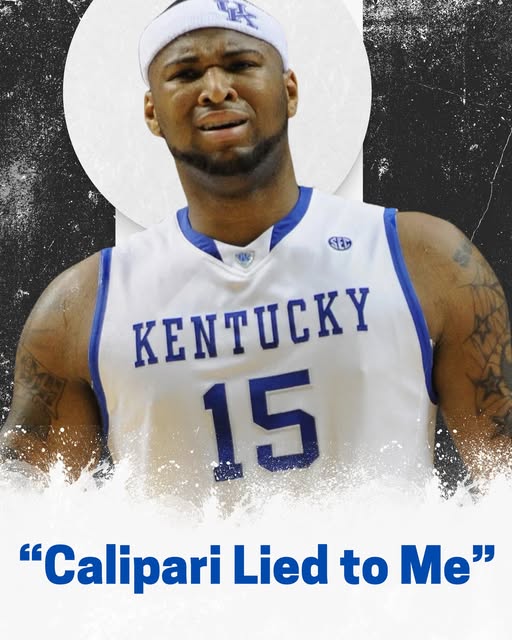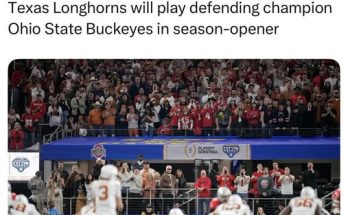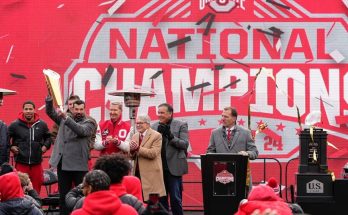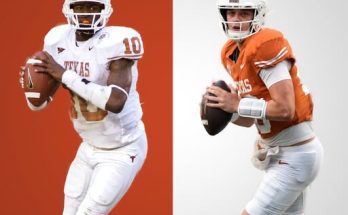**JUST IN: DeMarcus Cousins Says Calipari Lied to Him About His Role at Kentucky on the Run Your Race Podcast**
In a shocking revelation that has sent ripples through the basketball world, former Kentucky Wildcats star and NBA All-Star DeMarcus Cousins recently dropped a bombshell during his appearance on the *Run Your Race Podcast*. Cousins alleged that his former college coach, John Calipari, misled him about his role during his recruitment to the University of Kentucky. The explosive claim has reignited debates about the ethics of college recruiting, the promises made to young athletes, and the often murky relationship between coaches and their players.
Cousins, known for his dominant presence on the court and unfiltered honesty off it, didn’t hold back during the podcast. He recounted his experience as a highly touted high school prospect being courted by Calipari, who had just taken over at Kentucky after a successful stint at Memphis. At the time, Calipari was building what would become one of the most star-studded recruiting classes in college basketball history, featuring Cousins, John Wall, Eric Bledsoe, and Patrick Patterson. The team was poised for greatness, but according to Cousins, the reality of his time at Kentucky didn’t match the promises made to him.
“I was lied to,” Cousins said bluntly. “I was told one thing, and when I got there, it was completely different.” He didn’t delve into every detail, but the implication was clear—Calipari had sold him on a vision that didn’t materialize once he arrived on campus. For a player of Cousins’ caliber, who was already a top-tier talent with NBA aspirations, the discrepancy between expectation and reality was more than just a minor frustration. It was a betrayal of trust.
The specifics of what Cousins was allegedly promised remain somewhat vague, but given his comments over the years, it’s likely tied to his role and playing time. Cousins was a dominant force in college, averaging 15.1 points and 9.8 rebounds per game in his lone season at Kentucky, but there were moments when his minutes were inconsistent, particularly in crunch time. Some speculated that Calipari’s handling of Cousins was more about managing egos on a loaded roster rather than maximizing his potential. Others believe it was simply a case of coaching preferences clashing with player expectations.
What makes Cousins’ claims particularly intriguing is the timing. Calipari, now the head coach at Arkansas, has long been regarded as one of the most successful recruiters in college basketball history. His ability to lure top-tier talent to his programs is legendary, but so too are the whispers about his methods. Critics have often accused Calipari of prioritizing his own success—whether in terms of wins, NBA draft picks, or program prestige—over the individual growth of his players. Cousins’ comments seem to lend credence to those criticisms.
This isn’t the first time Cousins has spoken out about his time at Kentucky. In previous interviews, he’s hinted at frustrations with how he was used, but this is the first time he’s outright accused Calipari of deception. The fact that he’s doing so now, years removed from his college career, suggests that the wounds from that experience never fully healed. For a player who went on to have a successful NBA career despite battling injuries, the college chapter of his life still carries weight.
The fallout from Cousins’ comments will be interesting to watch. Calipari has built his reputation on relationships with players, often boasting about how many of his former Wildcats have gone on to NBA success. But if more players echo Cousins’ sentiments, it could tarnish that image. After all, Cousins isn’t just any player—he was a cornerstone of one of Calipari’s most iconic teams. The 2009-10 Kentucky squad was a juggernaut, finishing 35-3 and reaching the Elite Eight before falling to West Virginia. That team put Calipari on the map at Kentucky and set the stage for the program’s continued dominance in the years that followed.
Yet, if Cousins’ allegations are true, it raises questions about the cost of that success. College basketball is a business, and coaches are under immense pressure to win. In the pursuit of championships, promises can sometimes be exaggerated or outright broken. Players, especially young recruits, are often at the mercy of these promises, trusting that coaches will follow through. When they don’t, the consequences can linger long after the player has moved on.
Cousins’ story also highlights the broader issue of player empowerment in college sports. The NCAA has long been criticized for its exploitation of athletes, who generate millions for their schools but receive no direct compensation beyond scholarships. Recent changes, such as name, image, and likeness (NIL) deals, have begun to shift the balance of power, but the fundamental dynamics between coaches and players remain largely unchanged. A coach like Calipari wields enormous influence over a recruit’s future, and when that trust is broken, the player has little recourse.
It’s worth noting that Cousins’ relationship with Calipari wasn’t entirely negative. In past interviews, he’s credited Calipari for helping him mature and prepare for the NBA. But his latest comments suggest that the good doesn’t entirely outweigh the bad. For Cousins, the feeling of being misled still stings, even after all these years.
As the basketball world digests Cousins’ revelations, the bigger question is whether this will prompt other players to speak out. Calipari has coached countless stars, and if others share similar experiences, the narrative around his coaching legacy could shift. For now, though, Cousins’ words stand as a stark reminder of the complexities and sometimes harsh realities of big-time college sports.
In the end, the story of DeMarcus Cousins and John Calipari is about more than just basketball. It’s about trust, accountability, and the often unspoken tensions between coaches and players. As Cousins’ candid comments show, even years later, the impact of those broken promises can still be felt. And for a player who gave so much to the game, that’s a truth worth acknowledging.



